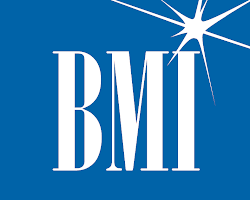Legal Aspects Of Music Synchronization
The legal aspects of music synchronization can be complex. There are two main copyrights that are involved: the copyright in the underlying musical composition, and the copyright in the sound recording.
The copyright in the underlying musical composition is owned by the songwriter or the music publisher. The copyright in the sound recording is owned by the record label or the artist.
In order to use a song in a visual medium, you will need to obtain a license from both the copyright holder of the underlying musical composition and the copyright holder of the sound recording.
The Copyright Act
The legal framework for music synchronization is governed by the US Copyright Act of 1976. The Copyright Act grants the copyright holder the exclusive right to reproduce, distribute, perform, and display their work.
When you use a song in a visual medium, you are essentially performing the song. Therefore, you need to obtain a license from the copyright holder of the underlying musical composition in order to perform the song.
You also need to obtain a license from the copyright holder of the sound recording in order to reproduce the sound recording.
Types of Licenses
There are two main types of licenses that you can obtain for music synchronization:
- Synch licenses: These licenses allow you to synchronize a song with visuals.
- Master use licenses: These licenses allow you to reproduce the sound recording of a song.
In most cases, you will need to obtain both a synch license and a master use license in order to use a song in a visual medium.
Negotiating Licenses
The terms of a music synchronization license will vary depending on the specific song and the visual medium in which it will be used. However, there are some common terms that are typically included in these licenses.
These terms include:
- The duration of the license
- The territory in which the license is valid
- The fees that will be paid to the copyright holder
- The credits that will be given to the copyright holder
Licensing Agencies
In some cases, you may be able to obtain a music synchronization license directly from the copyright holder. However, in most cases, you will need to obtain a license from a licensing agency.
Licensing agencies represent the copyright holders of songs and sound recordings. They can help you to identify the copyright holders of the songs that you want to use, and they can negotiate the terms of the licenses on your behalf.
Three Popular US Music Licensing Agencies
ASCAP:BMI:
SESAC:
Conclusion
The legal aspects of music synchronization can be complex. However, by understanding the basics of copyright law and by working with a licensing agency, you can obtain the licenses that you need to use songs in your visual media.
Keywords: music synchronization, music licensing, synch licensing, master use licensing, copyright law, ASCAP, BMI, SESAC.
Sources:
- Copyright Act of 1976: https://www.copyright.gov/title17/
- ASCAP: https://www.ascap.com/
- BMI: https://www.bmi.com/
- SESAC: https://www.sesac.com/
Call to action:






